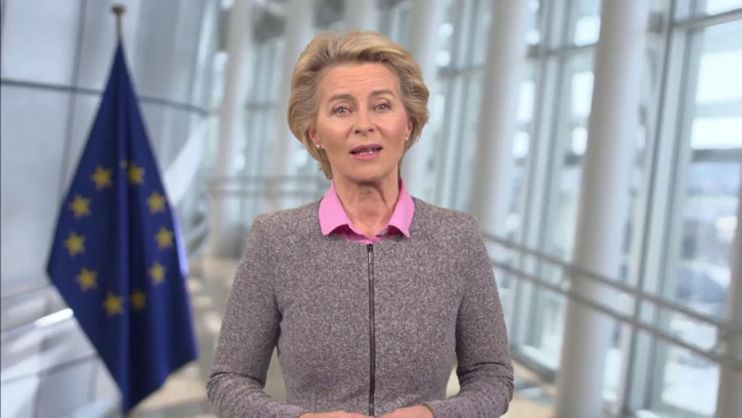EU orders more Pfizer vaccine doses as Sweden joins countries halting Astrazeneca jab

The EU has ordered more doses of Pfizer’s Covid vaccine to plug a shortfall that has arisen from a swathe of countries banning the Astrazeneca jab over safety concerns.
European Commission president Ursula Von der Leyen announced on Twitter that the EU had agreed an “accelerated delivery of 10m doses” of the Pfizer vaccine to be supplied over the next three months.
The order will bring forward proposed vaccine deliveries for the second half of the year, and will take the bloc’s total doses of the Pfizer jab to 200m for the second quarter.
“This is very good news. It gives member states room to manoeuvre and possibly fill gaps in deliveries,” Von der Leyen said in a statement.
Pfizer shares rose 1.4 per cent to $35.41 on the news.
It comes after Sweden this morning joined a growing list of EU countries to temporarily ban the Astrazeneca vaccine over concerns it could be linked to a heightened risk of blood clots.
State epidemiologist Anders Tegnell said the pause was a “precautionary measure” until the European Medicines Agency (EMA) completes an investigation into reports of several blood clot-related deaths.
No such cases have been reported in Sweden but neighbouring Norway and Denmark have each reported one death.
“There is good knowledge about this vaccine, but it is still important that we pause the vaccination until the EMA has investigated whether these events could be linked to the jabs,” Tegnell said this morning.
France, Italy and Germany yesterday announced a temporary suspension of the jab while the EMA investigation is underway. So far 12 countries have halted the rollout of the Astrazeneca vaccine.
The European Medicines Agency (EMA) said on Friday there was no evidence of a link between the events and the jabs, stressing that “the vaccine’s benefits currently still outweigh the risks”. It urged countries to continue with their vaccination campaigns.
Read more: EU extends vaccine exports checks by three months amid Astrazeneca row
The EMA added that the number of blood clots in people who have received the Astrazeneca vaccine is no higher than that seen in the general population. So far, 22 blood clots have been reported among the 3m people who have received the Astrazeneca jab as of 9 March.
The Prime Minister’s official spokesman insisted yesterday that the Astrazeneca vaccine “remains both safe and effective,” adding that there was “no evidence” that blood clots are any more likely to occur following vaccination.
Experts at the World Health Organization (WHO) and the EMA will convene separately today to evaluate the safety of the vaccine. It is understood the EMA will make a decision on the continued use of the vaccine on Thursday.
In the meantime, the EU is in discussions to place an order of Russia’s Sputnik V vaccine in a bid to accelerate the sluggish vaccine rollout across the bloc, officials told Reuters yesterday.
Hungary and Slovakia have already bought the Russian shot, while the Czech Republic has registered its interest in the jab.
The EU has approved four vaccines so far, including the Astrazeneca, Pfizer, Moderna and Johnson & Johnson jabs. However, production glitches and manufacturing scale-ups have slowed the bloc’s vaccination programme, causing some member states to seek their own solutions.